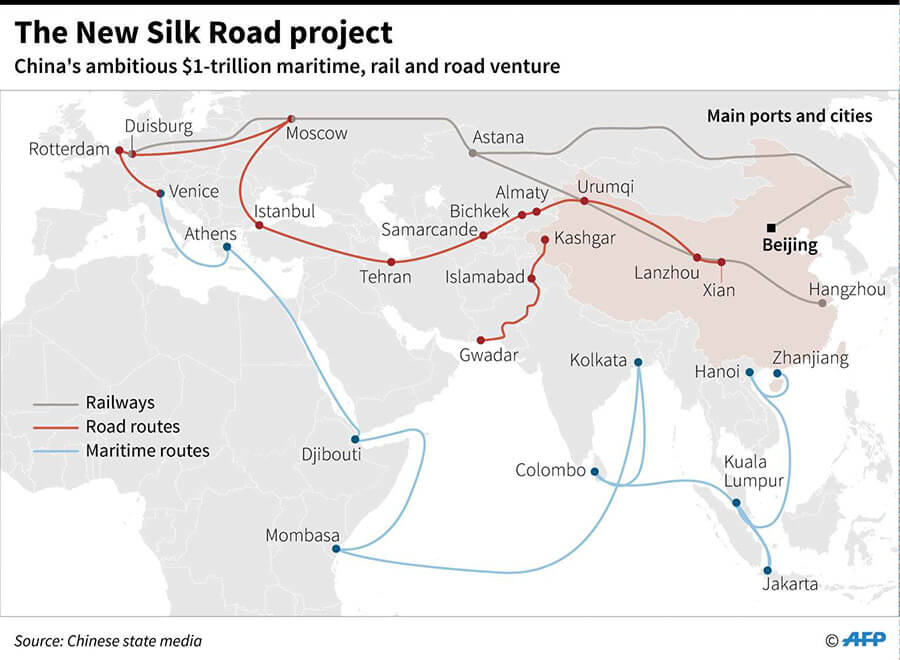Beijingwalker
Elite Member
- Nov 4, 2011
- 76,673
- 104,203
- Country of Origin

- Country of Residence

Saudi Arabia prioritises energy relations with China over deals with the US
The relationship between the Saudi kingdom and the Chinese giant shows that Washington's hopes that Riyadh would improve its relationship with the US were just wishful thinking
Saudi Arabian Crown Prince Mohammed bin Salman speaking at the Central Asia-GCC Summit in Jeddah - PHOTO/SPA
Relations between Saudi Arabia and China have grown over time and have proven to be a solid strategic partnership, independent of the situation with the United States.
Chinese Premier Li Qiang visited Saudi Arabia to participate in the Saudi-Chinese joint committee business meeting, which was also attended by Saudi Crown Prince Mohammed bin Salman. This meeting was part of a series of rapprochements between the two countries to improve their energy relations.

His Royal Highness Crown Prince Mohammed bin Salman and the Premier of the State Council of the People's Republic of China, His Excellency Li Qiang, hold an official session of talks – PHOTO/REDES SOCIALES
Li Qiang expressed his desire to improve coordination between the two countries' development strategies and promote greater bilateral cooperation. The Supreme Committee meeting focused on securing energy supplies. Although issues such as the trade agreement, existing problems and competition from Chinese products in the Saudi market were discussed.
Riyadh wants to assure Beijing that it will be able to supply it with oil for many years to come. Ahead of the meeting, Saudi Aramco, the Saudi national oil company, announced on its website the signing of two contracts with two Chinese energy companies. In the signed documents, Saudi Aramco pledges to enhance the contribution to China's energy security and the development of the sector in the medium and long term.
While Saudi Arabia is strengthening its relationship with China, the meetings, agreements and declarations send negative messages to the US, which is considered its priority partner. China is aware that its economy is influenced by US foreign policy through the pricing of oil in dollars.
The strengthening of Saudi-Chinese relations goes back a long way, when China offered Saudi Aramco a 5 per cent stake in its IPO in 2016 and 2017. Such an idea was welcomed by Prince Mohammed bin Salman, who proposed the idea of an IPO of the company's shares when the Saudi kingdom, at the time, was facing a severe crisis due to fossil fuel prices.
Since 2017, China has become the largest importer of crude oil globally, making it the world's largest net importer of oil globally.
The deal, which would greatly benefit China, was part of strengthening its ties with Saudi Arabia. In parallel, one of the biggest benefits was priority access to the Kingdom's oil production and thus being able to influence oil prices, as Saudi Arabia is the largest OPEC country.
Internationally, Beijing believes that Riyadh can influence Moscow's decisions to raise oil prices, which would not be in China's favour. China has become the world's largest oil importer, so Chinese diplomacy prefers to avoid tensions that would directly affect higher prices.
China benefits from its strong relationship with Saudi Arabia by having the support of a leader in the Islamic world. Beijing thus hopes to have the opportunity to increase its influence in the Middle East and elsewhere through its broader Belt and Road Initiative.
During the first China-Arab summit and the first China-Gulf Cooperation Council summit in December 2022, Beijing's expectations of the benefits of the relationship grew as it developed.

Map showing the New Silk Road, a huge Chinese infrastructure project including road, rail and ship routes - AFP/ LAURENCE CHU
In this context, Li Qiang made statements in line with the situation, saying that the two sides have been implementing the agreements reached at the summits for more than a year, strengthening political trust and fostering collaboration in various fields.
The 2022 meeting announced the signing of 34 agreements between Chinese and Saudi companies, in addition to sporadic meetings with other Arab countries. These agreements cover various sectors such as energy, security, science and technology, space, banking and infrastructure.
President Xi Jinping highlighted two important areas for the new relationship between China and Arab countries, including Saudi Arabia. They want to use the Chinese yuan in oil and gas deals, as well as introducing Chinese nuclear technology to these countries.
Chinese state media cited the identification of these two elements to strengthen strategic cooperation in a region where there are signs of weakening US influence.



